Introduction
Yesterday
Today
Tommorrow
JS History
Created in Netscape Communications Corporation, by Brendan Eich.
For 10 days in May of 1995, like a NetScape web-browser extension.
Working name – Mocha. First official name – LiveScript, then
renamed to JavaScript (as a marketing ploy).
Originally created as lightweight interpreting language to
complement Java by appealing non-professional developers.
JS History
<h1>Table of Factorials</h1>
<script>
function factorial(n) {
if (n <= 1) return 1;
else return n * factorial(n - 1);
}
document.write("<table>");
document.write("<tr><th>n</th><th>n!</th></tr>");
for (var i = 1; i <= 10; i++) {
document.write("<tr><td>" + i + "</td><td>" + factorial(i) + "</td></tr>");
}
document.write("</table>");
document.write("Generated at " + new Date());
</script>
Browser Wars


Browser Wars

Standardization
ECMAScript 1 in 1997
ECMAScript 2 in 1998.
ECMAScript 3 in 1999.
ECMAScript 4 – never released.
ECMAScript 5 in 2009.
ECMAScript 6 in 2015 – CURRENT.
Modern Days
Poularity
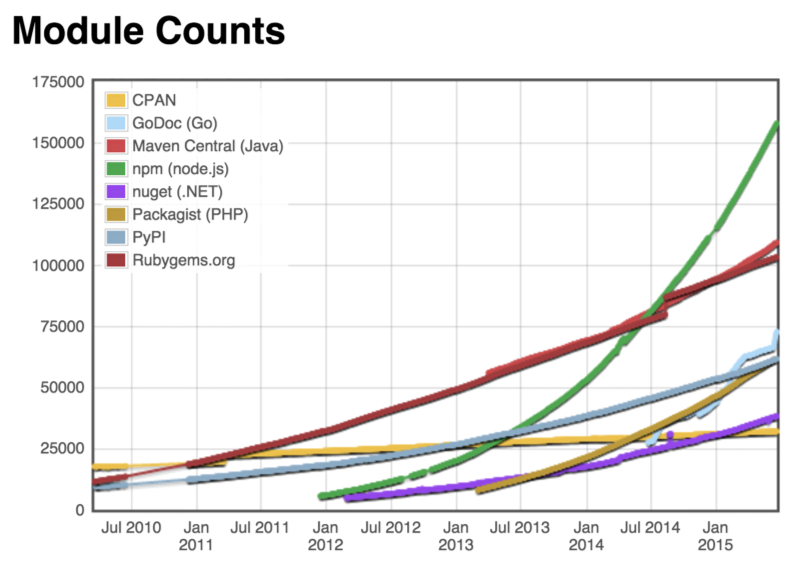
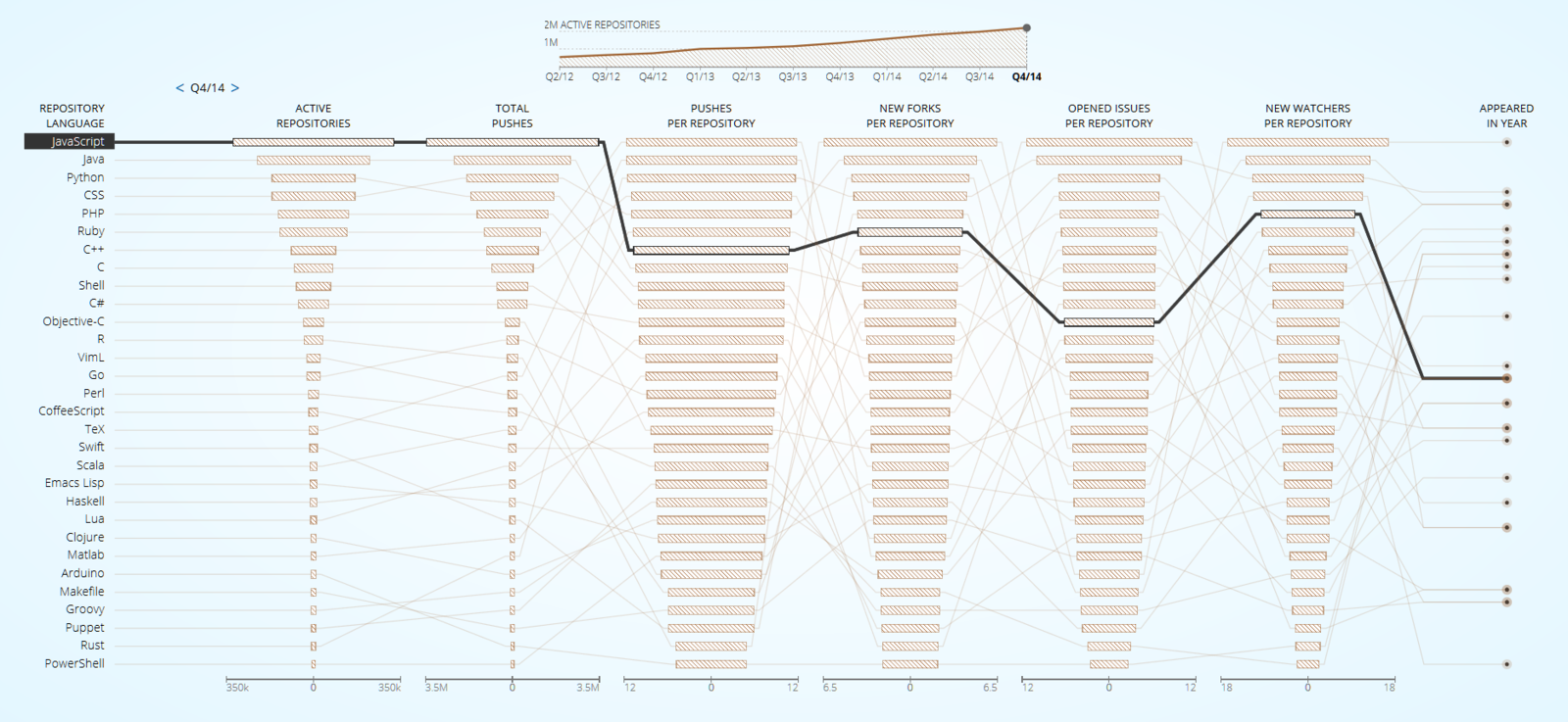
- Ease of Access
- Duck Typing
- Functional programming
- Prototype-oriented programming
- Client-side
- Internet connection independence
Pros
- Ease of Access
- Duck Typing
- Lack of standardization
- Insecure
- Lack of I/O (client-side)
Cons
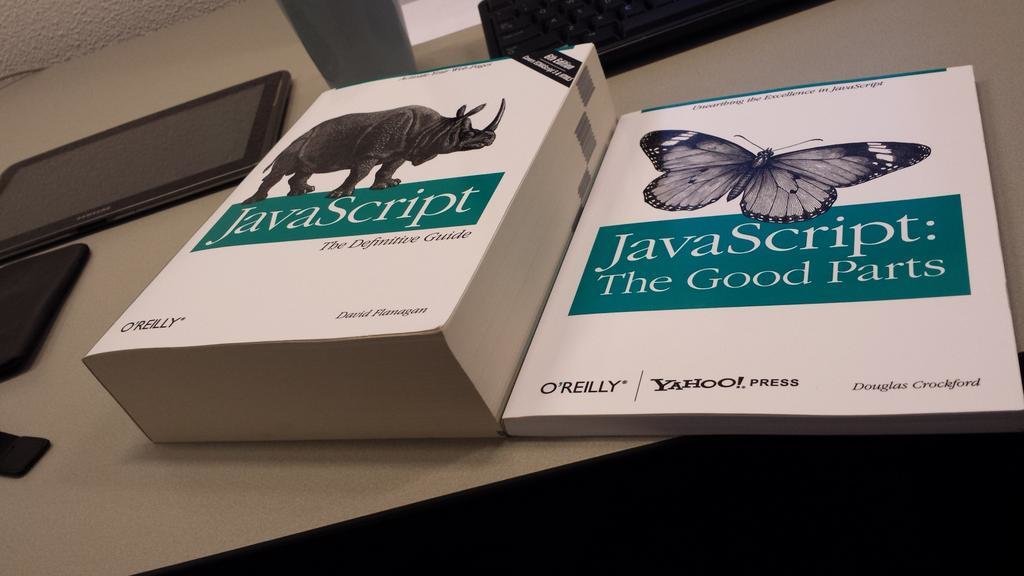
ECMAScript - 6 (ES2015) Features
const, let, functions block scope, args default values, var-args, spread operator, binary and octal literals, unicode regexp, object updates, array and object matching, export and import, class, extends, static, Symbol, iterator updates, Generator, Set, Map, Weak-Link, typed arrays, Promise, Proxy, Reflection, collation, formatting features, etc...
Enough Talking!
What is your current JS level?
var Hello = new Binding({
greet: function(who) {
alert("Hello " + who);
},
onclick: function() {
this.greet(Hello.WORLD)
}
}, {
WORLD: "World"
});
document.bind("#hello", Hello);Dynamic by nature!
/**
* For Local Files!
*/
loadAsync('app/src/some-local-script.js');
/**
* Or for some resources from anywhere in internet!
*/
loadAsync('https://ajax.googleapis.com/ajax/libs/angularjs/1.4.9/angular.min.js');
/**
* Let user full control!
*/
loadAsync(prompt('Please input your url for JavaScript file.'));
function loadAsync(path) {
var scriptTag = document.createElement('script');
scriptTag.src = path;
document.body.appendChild(scriptTag);
}
Asynchronous
(function() {
'use strict';
let log = console.log.bind(console),
playerOneSteps = 0,
playerTwoSteps = 0;
var playerOne = setInterval(() => {
setTimeout(() => {
playerOneSteps++;
log('Player 1 turn');
}, someRandom());
}, 300);
var playerTwo = setInterval(() => {
setTimeout(() => {
playerTwoSteps++;
log('Player 2 turn');
}, someRandom());
}, 300);
var second = setInterval(() => {
log('!!! -Current Score- !!!');
log('Player One make turns: %d', playerOneSteps);
log('Player Two make turns: %d', playerTwoSteps);
}, 1000);
function someRandom() {
return Math.round(Math.random() * 5000 + 1000);
}
function makeItStop() {
clearInterval(playerTwo);
clearInterval(playerOne);
clearInterval(second);
}
}());Tools, Subsets and Supersets





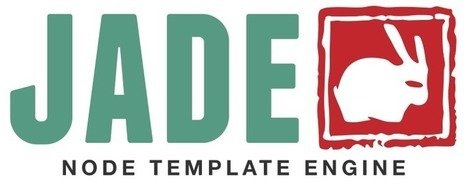
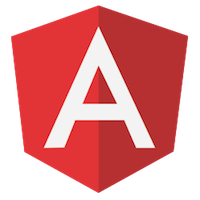

Future
What Next?..
WebAssembly integration
ECMAScript 7
Shared Memory
Questions?
See You Next Time :)
JavaScript Introduction
By diodredd
JavaScript Introduction
JS Intro for training.
- 821



